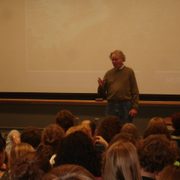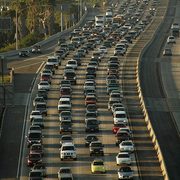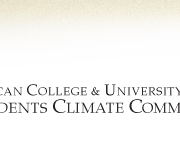-
Top 100 Effects of Global Warming
Campus Progress, a project of the Center for American Progress think tank, has compiled news stories to present 100 effects of global warming.
Though some of these may be dismissed as alarmist, there is a lot of substance behind most of these stories published by media outlets like the Washington Post, Science, BBC, and National Geographic.
What effect do I want to see happen the least?
Say Goodbye To Guacamole. -
Discussions about the problems of the Three Gorges dam are nothing new. With the forced re-location of 1.3 million people and the potential large-scale environmental impacts, the Three Gorges Dam has been a common topic in many classes and used as a case study in several senior comps projects (including this author’s) in subjects ranging from international relations, geology, and economics.
This article in the Financial Times is really interesting because the Chinese government is publicly acknowledging for the first time what everyone else has been saying. The Three Gorges dam has a lot of problems.
Continue by clicking the “read more” link below
-
Carleton students and faculty members packed the Boliou lecture hall last Wednesday to hear geochemist Wally Broecker deliver a lecture entitled “How to Terminate a Glacial Period.” Dr. Broecker, the Newberry Professor of Earth and Environmental Sciences at Columbia University, described new research that gives insight into the Younger Dryas period, a time of cold climate conditions eleven to twelve thousand years ago. In the ongoing research of global warming, this era serves as a particularly interesting example of a time of rapid climate change, when the thermohaline conveyer of ocean currents suddenly shut down, possibly as a result of the flooding of ancient Lake Agassiz (present day Great Lakes) into the Atlantic Ocean. Dr. Broecker has written that the Younger Dryas “holds the key to understanding abrupt climate change” and thus, merits extensive research given our current situation with global warming.
Continue by clicking the “read more” link below
-
Time in a Bottle: America’s Congestion Problem
In a study released this week, the Texas Transportation Institute found that congestion is getting worse for American commuters. The study reports that Americans spent 4.2 billion hours in traffic congestion in 2005. This figure corresponds to an annual delay of 38 hours for the average peak-hour commuter, almost a full week of work (or vacation). Additionally, these delays led to 2.9 billion gallons of wasted fuel. According to EPA calculators, this means that over 25 million metric tons of carbon dioxide is emitted annually due to urban congestion in the U.S., a number roughly equal to the entire carbon dioxide emissions of Peru, Ecuador, or Cuba.
To read the full report, click here.
-
“The farm is the best place to grow up. You get to understand the connection between work and life. You get to understand death. Not a lot of people understand all that.”
Steve Schwen didn’t grow up on a farm himself, but the agricultural wisdom he gently, passionately described to David Hougen-Eitzman’s Agroecology class this week was as old and wise as the soil itself. Born in rural Minnesota, surrounded by farms, Schwen followed his family’s advice to seek “greater things” by attending Medical School. His passion quickly shifted, however, with the back-to-the-land movement of the 1960’s. “The heart of the whole thing was a spiritual awakening,” Schwen stated, and said that he experienced the awakening intimately himself. He has been farming in southeastern Minnesota ever since.
Schwen’s farming methods are far from the conventional industrial model that we are surrounded by in this part of the country. He is an organic farmer in the traditional sense, meaning that he has never been certified but sets very high standards for himself and has always grown the cleanest food around. He is a self-described peasant with 14 acres of land (compared to the hundreds of acres that conventional corn and soybean farmers have) and practices Permaculture, a method of planting sections of perennial plants such as apple trees, raspberries and asparagus along the natural curvature of the land. The land between these permanent plantings becomes naturally leveled and terraced for all of the annual crops. Schwen cultivates using a team of two loyal horses, who he showed picture after picture of like a proud parent. “Horses are solar-powered” Schwen said, “and their only exhaust is fertilizer for the farm!”
Continue by clicking the “read more” link below
-
Harvard Economist on Carbon Taxes
Greg Mankiw, professor at Harvard University and former economic advisor to George W. Bush, writing in the New York Times Sunday Business section, discusses the details of carbon taxes.
-
In the early 1980s, two global environmental issues began to receive a lot of attention. Scientists discovered large holes in O-zone layer in the Antarctic region and attributed it to the correlation between the size of these ozone holes and CFCs. Meanwhile, scientists also discovered an alarming pattern of rise in global temperature and attributed it to the correlation between temperature and greenhouse gas emissions.
Where the two are different is how they have been addressed. To state things rather simply, o-zone depletion rates have rapidly reduced and the o-zone should restore itself over the course of this century due to innovation from American companies and an international treaty called the Montreal Protocol. Unfortunately, this has not been the case with global warming where talks have stalled for nearly twenty years since James Hansen, the head of NASA’s Goddard institute, went before the US congress forecasting continued rise in global temperature.
Andrew Revkin in Tuesday’s New York Times Science section has an excellent commentary on the history of international treaties for o-zone depletion and global warming as the Montreal Protocol celebrates its 20th anniversary. If you don’t know much about the Montreal Protocol, it’s definitely an article worth checking out.
Continue by clicking the “read more” link below
-
Carbon Indulgences
Which nation will be the first to offset all of its emissions?
Click here to find out.
-
On February 26, 2007, as many of you know, President Rob Oden signed onto the Presidents Climate Commitment, which committed Carleton to initiate the development of a comprehensive plan to achieve climate neutrality as soon as possible. The whole campus warmly received the announcement of his signature even though few people were aware of what exactly he had signed onto.
I wanted to provide a few details in this post about what exactly the Presidents Climate Commitment is, and then discuss a little about the short-term implications of signing the commitment.
Continue by clicking the “read more” link below
Categories
- Building and Planning
- Carleton's Wind Turbines
- Climate Change
- Conferences
- Cowling Arboretum
- Ecosystem Management
- Emissions and Offsets
- Energy Sources & Uses
- Environmental Justice
- Events
- Food
- Higher Education
- International News
- National News
- News
- STA Program
- Student Life
- Student Projects
- Sustainability
- Sustainable Planning & Development
- Transportation
- Waste






